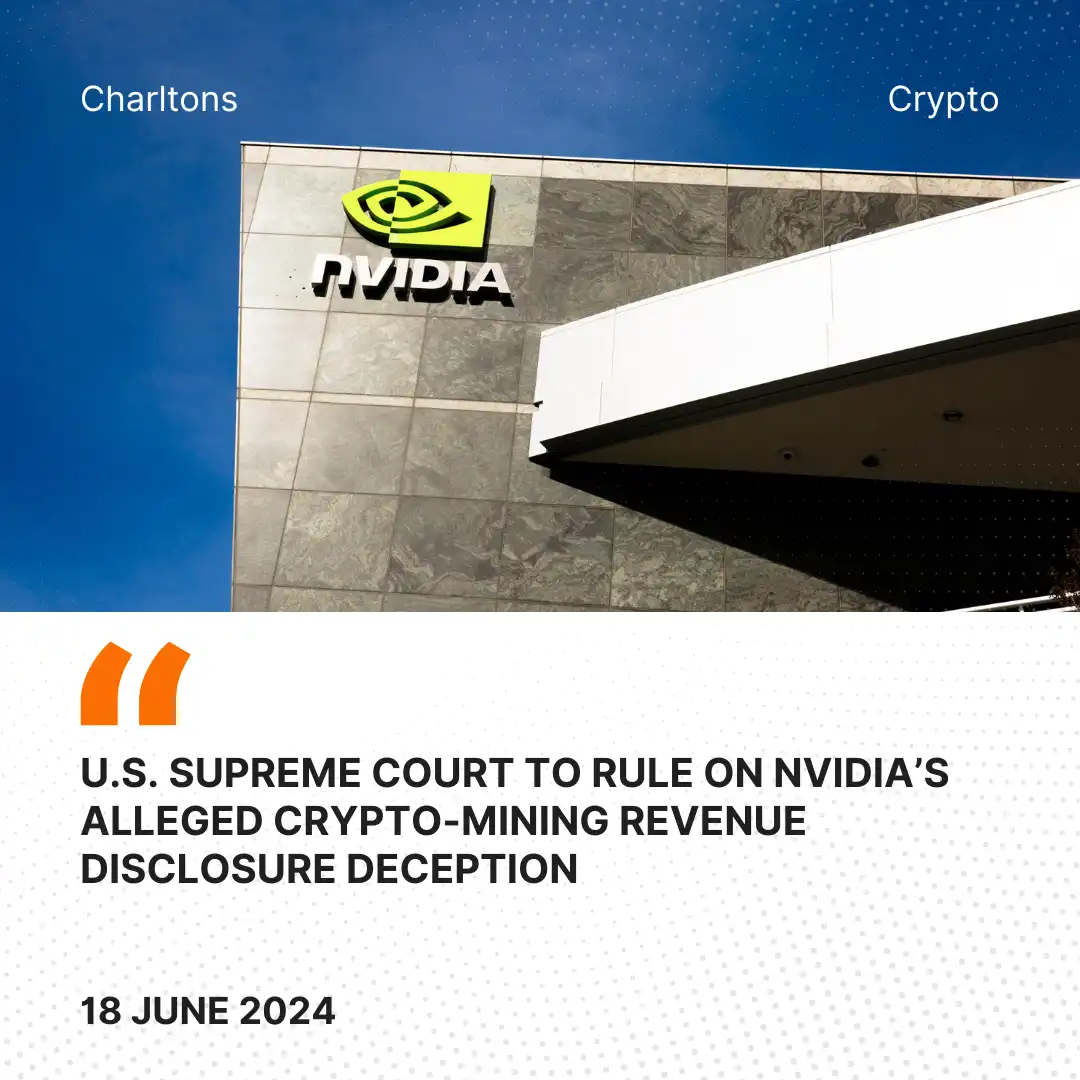
The US Supreme Court has decided to review a significant case involving Nvidia Corp.’s disclosure of its crypto mining revenue, a decision that could set a precedent for future shareholder lawsuits. Nvidia is seeking to dismiss an investor lawsuit claiming that the company misled shareholders about its reliance on crypto mining revenue prior to a 2018 market downturn.
Shareholders allege that Nvidia’s CEO, Jensen Huang, concealed the fact that the company’s record revenue growth in 2017 and 2018 was largely driven by crypto mining-related sales of its flagship GeForce GPU product, rather than gaming sales. They argue that this lack of transparency exposed Nvidia to greater risk than what was disclosed, which became evident when the company announced a revenue shortfall in November 2018. This announcement led to a more than 28% decline in Nvidia’s stock over two days, which Huang attributed to a “crypto hangover.”
The investors claim that internal communications would reveal the true extent of GPU sales to cryptocurrency miners, contradicting Nvidia’s downplayed significance of mining-related demand. However, Nvidia contends that no such evidence has been presented.
The 9th US Circuit Court of Appeals in San Francisco previously ruled that the shareholders’ lawsuit could proceed, rejecting Nvidia’s motion for dismissal. Nvidia has since appealed to the Supreme Court, emphasizing the absence of internal company documents that would support the claim that officials were aware of making misleading statements.
If the Supreme Court sides with Nvidia, it could establish a higher threshold for shareholder lawsuits, allowing companies to secure early dismissals more easily and avoid the substantial costs associated with defending such cases. This could reshape the dynamics of shareholder litigation, influencing the level of accountability required from companies regarding their public statements and disclosures.
Non-disclosure of significant revenue sources can lead to severe penalties, including hefty fines and reputational damage. However, companies often settle such disputes to avoid protracted legal battles. A settlement in Nvidia’s case could involve compensating affected shareholders and implementing more rigorous disclosure practices, which could help restore investor confidence.
The outcome of this case could have far-reaching implications for how companies communicate their revenue sources and the extent to which they must disclose risks associated with their business operations, particularly in volatile sectors like cryptocurrency.
At the time of writing, the total valuation of the crypto market stands at $2.3 trillion, down from its mid-March peak of $2.7 trillion. Investors are watching for significant catalysts to reignite the previous upward trend in the prices of major cryptocurrencies.





